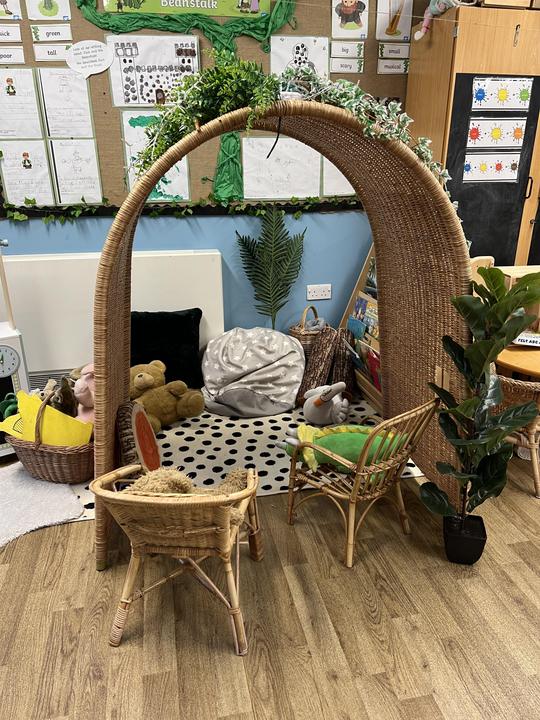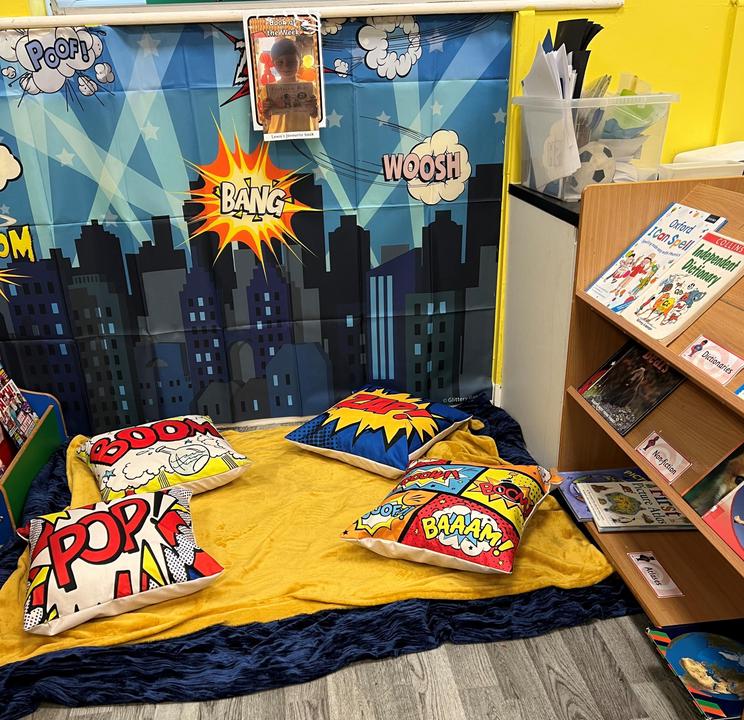English
We believe, at Galley Common School, that through reading and writing, children develop their powers of imagination, communication and critical awareness.
We firmly believe that the learning of English is a significant life skill and that the development of strong learning foundations will enable our children to listen, speak, read and write confidently throughout their school career and on into adult life. English is taught, of course, as a core curriculum subject. However, the key skills of speaking and listening, reading and writing are practised and extended throughout the day in a wide range of cross curricular contexts. Through the English curriculum, we will help children develop the skills and knowledge that will enable them to communicate effectively and creatively through spoken and written language and equip them with the skills to become lifelong learners. We want children to enjoy and appreciate literature and its rich variety.
Aims
We aim to develop in all the children:
- A positive attitude towards all aspects of English.
- The ability to communicate and respond effectively.
- A love of reading and books.
- The competence to produce work of high quality.
- As much independence and confidence as possible.
- A keen awareness of audience in all areas of English, across the range of English skills.
- Persistence and stamina.
- The confidence to tackle and solve problems through the application of knowledge and the use of skills.
Objectives
- To provide a rich topic based English curriculum starting from where the children are.
- To provide a stimulating environment in which all the skills of English can thrive.
- To develop trusting relationships in the classroom so that the children can express and explore half-formed thoughts without the fear of negative criticism.
- To follow the guidelines of the Curriculum of 2014, Early Years Foundation Stage, and Letters and Sounds.
- To motivate children by drawing on their experiences and perceptions.
- To provide multi-sensory English education in order to maximise engagement and enjoyment in all children.
- To use a variety of techniques, including drama, to expand the range of opportunities for expression and interaction in English.
- To encourage an atmosphere of trust and supportiveness in which children can take creative and intellectual risks.
World Book Day Celebrations
 |
 |
|
|
Book Corner Competition
 |
 |
 |
 |
 |
 |
We had a book corner competition. The School Council had to decide which was their favourite. They had to think about the following things that make a brilliant book corner:
Are there lots of books/magazines/poems..?
Is it bright and cheerful?
Is it comfortable?
Is it creative?
Is it neat and tidy?
Has it got a good theme?
I wonder which book corner you would choose?
Writing
To enable our children to write effectively and coherently we teach writing using 'The Write Stuff' approach by Jane Considine. This approach is used from Reception to Year 2 and allows children to apply basic skills, vocabulary and grammar knowledge to write effective sentences, which are full of impact and keep the reader interested. 'The Write Stuff' brings clarity to the mechanics of teaching writing. It is introduced though the 'Writing Rainbow', using the three zones of writing:

From 'The Writing Rainbow', symbols are used to support children within their writing journey and to ensure that all children can use them in context as they move through school.
As part of the teaching sequence, teachers plan experience days; sentence stacking lessons and independent writing sequences. Experience days immerse children in experiences linked to their writing and drench them in vocabulary linked to the lenses in 'The Writing Rainbow'. From the experience days, children take part in the sentence stacking lessons. Sentence stacking lessons include effective demonstration writing from the teacher and the writing of three high-quality sentences with focuses on lenses of the rainbow. Children are also given the opportunity to 'Deepen The Moment' and add more to their writing using a lense of their choice. Independent writing sequences give children the opportunity to showcase everything they've learnt in their experience days and sentence stacking lessons.
Over their time at Galley Common Infant School, children will write a range of genres focused on high-quality texts. The chosen texts and genres cover a wide range of themes, including cultural, social and physical diversity. All fiction texts are explored through a central character, where the children put themselves in their position and focus on the highs and lows of story events and discuss the range of emotions from plot point to plot point.

